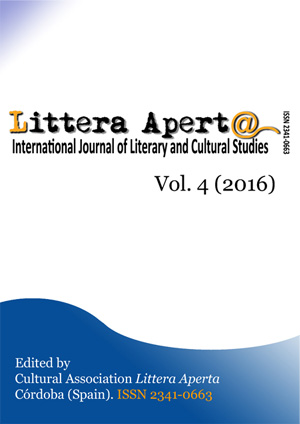Lucretius in the novel Crematorio by Rafael Chirbes
Main Article Content
Abstract
This article explores the influence of Lucretius on the novel Crematorio (2007) by the Valencian novelist Rafael Chirbes (1949-2015). Considered one of the best Spanish novelists of the 21st century, Chirbes acknowledged in several interviews the Lucretian influence on his novel and, indeed, among the funds of his library, there was a De rerum natura profusely underlined by his own hand, which will guide us in the search for concrete resonances from the Roman Epicurean. Chirbes shares Lucretius’ materialistic view of universe and uses his writings to denounce the vices of society, with a purpose of moral reform. The main motifs adapted from Lucretius are the general materialist concept of life and universe, the human being as dust, the eternal recycling of the universe’s matter and of living beings, the violence in sex, the Hell in life, and the rebuttal of wealth as a factor of evils.
Downloads
Download data is not yet available.
Article Details
Section
Articles
Authors who publish with Littera Aperta agree to the following terms:
- Authors retain copyright and grant the journal right of first publication with the work simultaneously licensed under a Creative Commons Attribution 4.0 International License that allows others to share the work with an acknowledgement of the work's authorship and initial publication in this journal.
- Authors are able to enter into separate, additional contractual arrangements for the non-exclusive distribution of the journal's published version of the work (e.g., post it to an institutional repository or publish it in a book), with an acknowledgement of its initial publication in this journal.
- Authors are permitted and encouraged to post their work online (e.g., in institutional repositories or on their website) prior to and during the submission process, as it can lead to productive exchanges, as well as earlier and greater citation of published work (see The Effect of Open Access).
